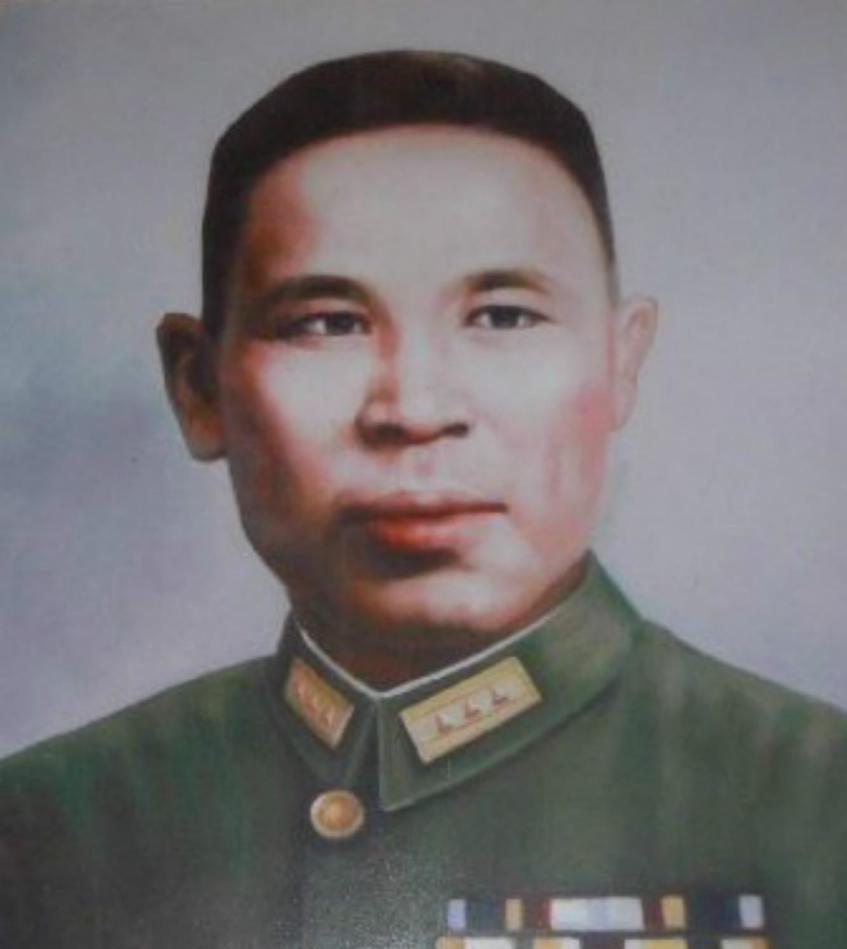In the past few days, Lao Ding has been telling you the stories of famous generals of the War of Resistance, and we have already told you about the deeds of Wang Jinya, Liang Huasheng, and other famous generals of the National Army; today I want to tell you about this famous general of the War of Resistance, when he was a division commander, his division became a "glorious division," and when he was a commander, his army became an "invincible army." He had excellent command ability.

His name was Chen Pei, Lieutenant General of the Army.
Chen Pei is a famous person from Mao, Guangdong, born in 1897, after graduating from the Agricultural College, he was admitted to the first phase of the Whampoa Military Academy, because of his bravery in battle, less than a year later, he was promoted to colonel of the first regiment of the first division of the army, and later the commander of the twenty-eighth brigade of the tenth division, and the commander of the sixtieth division.
In early 1938, after the outbreak of the War of Resistance Against Japanese Aggression, Chen Pei led the Sixty Division from Ningguo, Anhui Province, into Yixing and Liyang, Jiangsu Province, attacked and harassed the Japanese army's communication lines, and then entered and exited Wuxi and Jintan, destroying the Beijing-Hangzhou railway communication line, causing the Japanese army to be overwhelmed and launching a large-scale sweep. After nine days and nights of bitter fighting in the Yili area of Jiangsu Province, when the Sixty Division was facing encirclement by the Japanese army, General Chen Pei immediately commanded the main force of the Sixty Division to take advantage of the night to break through, and together with friendly troops came to counter-encircle the Japanese army, which dealt a heavy blow to the Japanese Army's Mujie Sanlang Brigade.
In May 1939, General Chen Pei succeeded Guan Linzheng as commander of the Thirty-seventh Army.
In September 1939, the commander-in-chief of the Chinese dispatch army, Okamura Ningji, gathered more than 100,000 troops in Linxiang and Yueyang to prepare to attack Changsha. At this time, Chen Pei's Thirty-seventh Army was garrisoning the southern bank of the Miluo River to hold the second line of defense. In the face of the fierce Japanese army, our side also actively prepared for the first defense of Changsha.
At dawn on September 18, the Japanese army, with the cooperation of artillery, tanks and air force, frantically attacked the defensive area of our army, and fought fiercely until dusk on the 22nd, when the positions of jinlongshan and grass shoe ridges of the fifty-second army stationed in the first line of defense of the New Wall River were all lost. In the face of the fierce Japanese army, General Chen Pei led the main force of the Thirty-seventh Army, the Sixty Division, and the 1402 Divisions from the Second Line to reinforcements, one was to cover the Fifty-second Army withdrawn from the New Wall River, and the other was to block the speed of the Japanese attack between the New Wall River and the Miluo River, and to buy time for the construction of the latter line.
The Thirty-seventh Army and the Fifty-second Army thus depleted the Japanese army while fighting, and the speed of the Japanese army's attack was also significantly slowed down, and when the Japanese army attacked the Miluo River on the second line, the balance of forces between the enemy and us was already a balance of power. By the time the third line of the Knife River was reached, the japanese army had run out of food and ammunition, and the rear supply was all airdropped. At this time, the Japanese army had become the end of the crossbow, and on October 1, Okamura Had no choice but to order a retreat. When the enemy army was retreating, our army also launched a powerful offensive, and by the 6th, our army had completely regained its position and won the first victory in the defense of Changsha.
In recognition of the heroic performance of the Thirty-seventh Army in the defense of Changsha, the Ninth Theater Command decided to award the Thirty-seventh Army the title of "Invincible Army" (pennant).
Okamura Ningji, who had been suspended for two years, was still not satisfied with the defeat of Changsha, and he organized a large group of men and horses to attack Changsha twice in September and December 1941. As everyone knows, Okamura Ninji once again failed.
Chen Pei, the commander of the "Invincible Army", was promoted to deputy commander-in-chief of the 32nd Group Army in January 1944 because of his outstanding military achievements, and then he led his troops into Zhejiang and concurrently served as the commander-in-chief of the former enemy in eastern Zhejiang. At the time of Japan's surrender, Chen Pei was the surrendered governor of Ningbo.
After Chiang Kai-shek's defeat on the mainland, Chen Pei also went to Taiwan and died in 1987 at the age of 90.